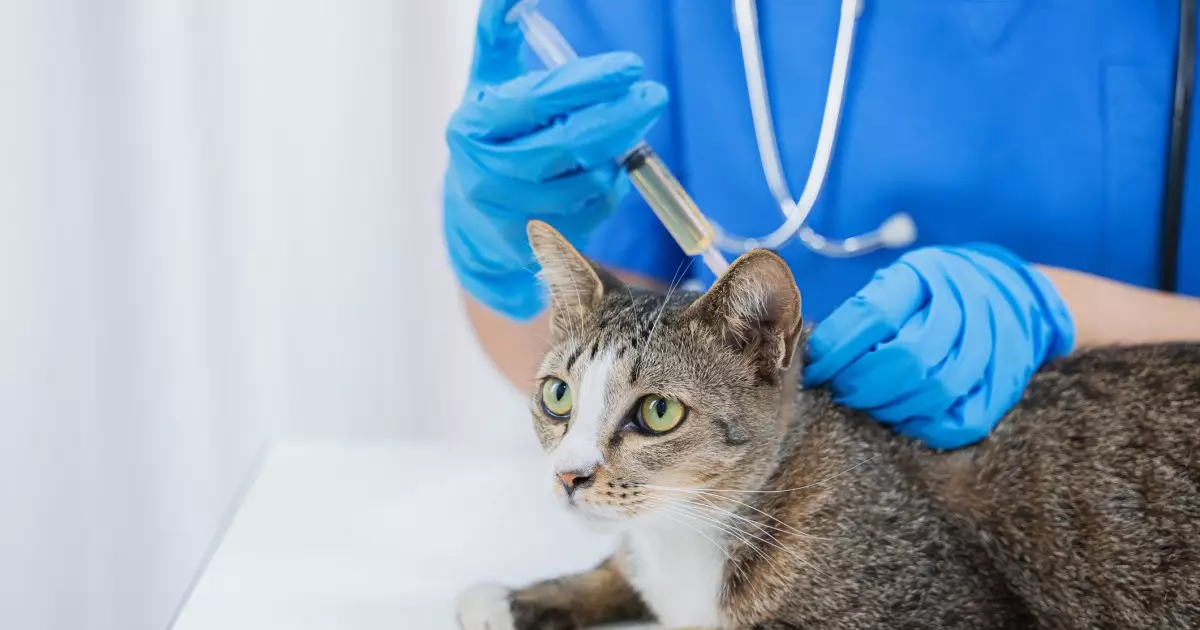As a cat owner, the joy of bringing a new feline friend into your home is irreplaceable. However, amidst the cuddles and purrs, there’s a significant responsibility that comes with providing a healthy and safe environment for your newfound companion. One of the critical components to achieving this is understanding the importance of vaccinations. Unfortunately, misinformation abounds when it comes to pet vaccinations, leading to potential risks for your beloved cat. In this article, we will dissect common misconceptions about cat vaccinations and discuss the essentials that every cat owner should know.
The Myth of Lifelong Immunity
A prevalent belief among cat guardians is that a single vaccination is sufficient for lifelong immunity. While it’s understandable to wish for a quick and easy solution, this notion is misleading. Studies show that immunity does not last indefinitely; rather, it diminishes over time. For this reason, vaccination protocols include booster shots to reinstate this immunity. The fall in antibody levels is often gradual and can only be discerned through specific blood tests, which may not be practical or necessary for most pet owners.
Veterinarians routinely rely on established guidelines that take into account the average duration of immunity, allowing them to recommend the appropriate timing for booster shots. Consequently, skipping these vital follow-up vaccinations can leave your cat vulnerable to infections that they previously had defenses against.
Senior Cats and Vaccination Needs
Another common myth is that older cats can skip booster shots because they have presumably built up sufficient immunity over their lifetime. However, even the healthiest senior cats experience a decline in immunity as they age. This deterioration means that they are at a higher risk for diseases, making boosters even more crucial for them. It is essential for senior cat owners to recognize that age is not a shield against illness; instead, it can increase dependency on vaccination for adequate protection.
Moreover, because older cats tend to have weaker immune systems, they are more susceptible to infections from diseases that can be prevented with vaccination. Thus, letting their vaccination schedule slide can severely jeopardize their health.
Some cat owners feel a false sense of security by keeping their feline friends indoors. While it is true that indoor cats are generally at a lower risk for certain diseases, they are not entirely immune. Virulent viruses, such as feline panleukopenia, can linger in the environment, and humans can unknowingly bring these pathogens into the house on shoes or clothing. Therefore, even indoor cats may need certain vaccinations to protect them adequately.
Veterinarians can perform risk assessments tailored to each cat’s lifestyle, determining which vaccines are essential based on the cat’s exposure to potential disease threats. Thus, tailored vaccination plans consider the specific circumstances of the cat—indoor or outdoor—ensuring appropriate protection is maintained.
Addressing Over-Vaccination Concerns
In recent years, concerns about over-vaccination have gained traction among pet owners. However, the veterinary community takes this issue seriously and works diligently to minimize unnecessary vaccinations by evaluating each cat’s individual risk factors. Vaccines can be categorized into ‘core’ and ‘non-core’ types, with core vaccines being universally recommended for all cats, while non-core vaccines may only be necessary for cats at higher risk of certain diseases.
For instance, while vaccinations against rabies are considered essential and mandated by law in many regions, vaccines against conditions like feline leukemia are deemed less critical for indoor cats. Still, a thorough vet consultation can help cat parents understand their pets’ specific healthcare needs while navigating the delicate balance between protection and over-vaccination.
When it comes to vaccinations, responsible cat ownership means being informed. The advantages of keeping up with vaccination schedules far outweigh any potential risks associated with them. The reality is that diseases such as feline leukemia, cat flu, and distemper continue to pose serious threats to cats. Therefore, it is essential for pet owners to remain well-informed about vaccinations.
Minor side effects can occur, such as localized swelling at the injection site or mild lethargy, but serious adverse reactions are rare. Veterinary practices take precautions by individualizing vaccination protocols and monitoring injection sites to mitigate any complications.
Making educated choices regarding your cat’s vaccinations is vital to their health and longevity. Vaccination myths can lead to misunderstandings that may put your cat at risk. A proactive approach—one that emphasizes accurate information and regular check-ups—will greatly contribute to a happy and healthy life for your feline companion. Always remember, basing decisions on facts rather than fears can help ensure that you are doing what’s best for your cherished pet.
